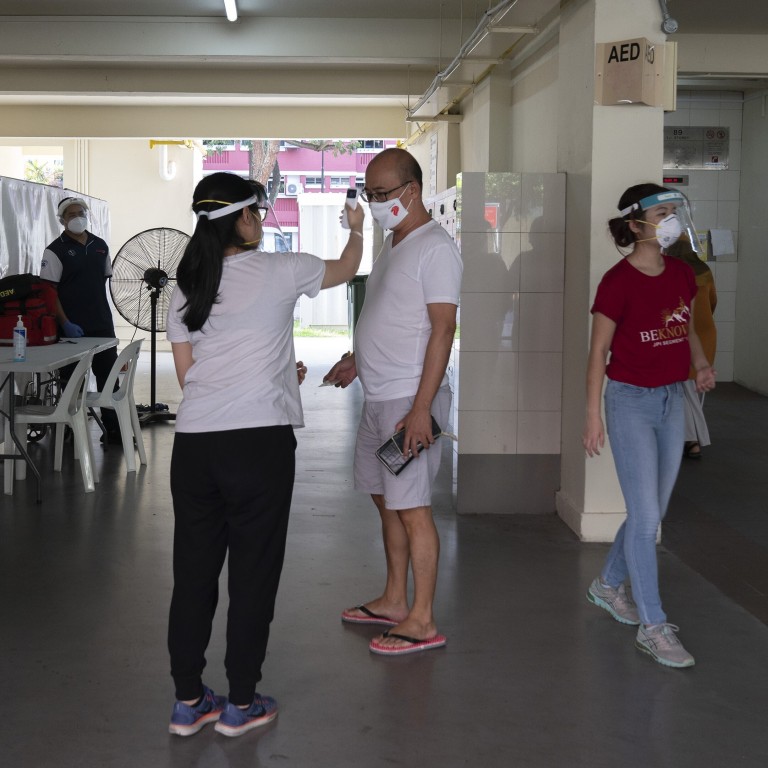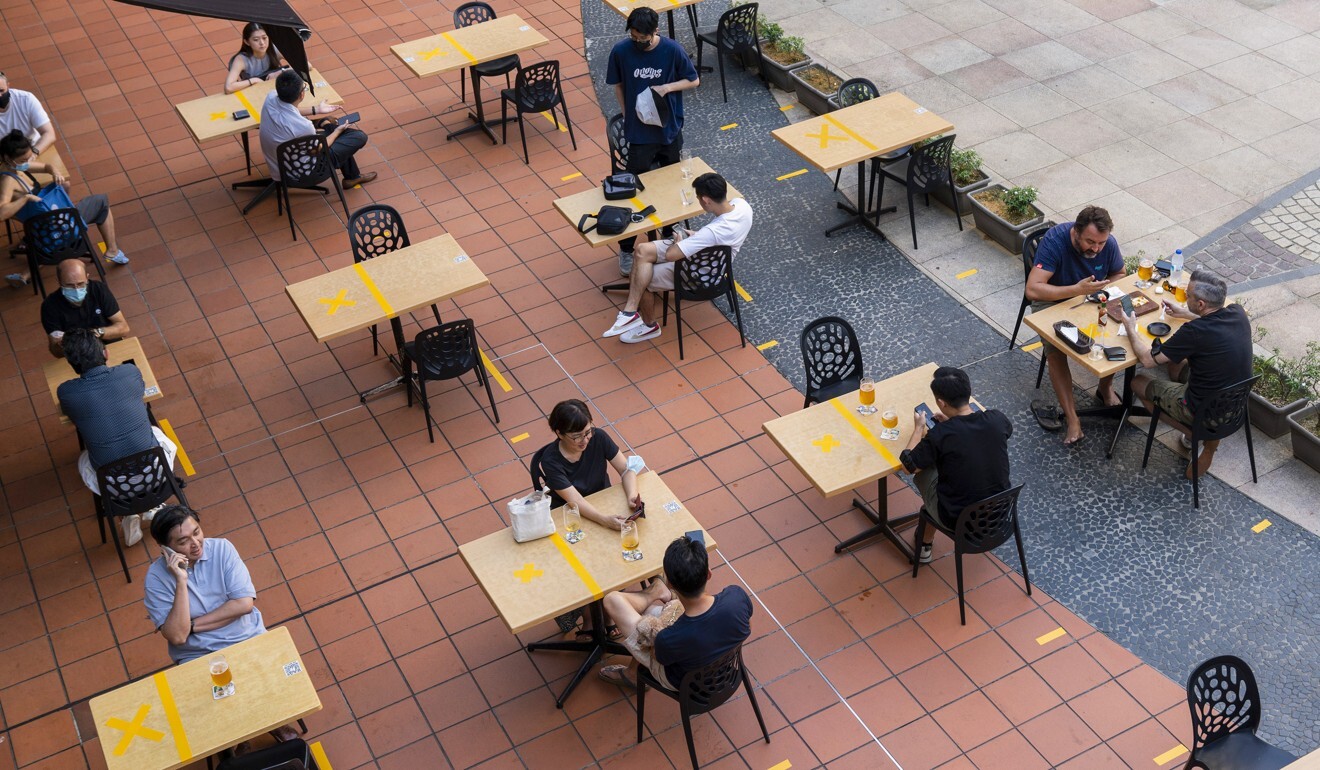
Singapore preparing to live with endemic Covid-19 as residents grow ‘battle weary’ of pandemic, ministers say
- The three ministers who co-head the government’s coronavirus task force said in an op-ed they were sketching out a plan to treat Covid-19 as endemic
- This could include ‘multi-year’ vaccine booster shots, a shift away from monitoring daily cases and a return of mass gatherings, they said
In an op-ed for the The Straits Times, the three ministers who co-head the government’s coronavirus task force said they were sketching out the plan as residents increasingly become “battle weary” after 18 months of weathering the pandemic.

Singapore, which is in the midst of scaling back restrictions on public gatherings put in place in May following a surge in cases, has one of the world’s lowest death tolls from the pandemic.
In a Thursday press conference, officials said the republic would begin vaccinating 80,000 people daily from Saturday, an increase from the current 47,000.
The vaccination programme will also be expanded to include permanent residents and long-term pass holders aged 12 to 39 starting next month.
“All are asking: when and how will the pandemic end?” ministers Gan Kim Yong, Ong Ye Kung and Lawrence Wong wrote in their opinion piece. “The bad news is that Covid-19 may never go away. The good news is that it is possible to live normally with it in our midst. This means Covid-19 will very likely become endemic.”
Why Singaporeans are lining up for Sinovac jabs despite efficacy concerns
Like influenza, Covid-19 will continue to mutate and survive in the community, though a majority of those who contract it will recover without needing to be hospitalised and with little or no medication, the ministers said.
“We can work towards a similar outcome for Covid-19. We can’t eradicate it, but we can turn the pandemic into something much less threatening, like influenza, hand, foot and mouth disease, or chickenpox, and get on with our lives,” they said.
In Singapore, of the “120 plus” fully vaccinated people who had still caught Covid-19 – and were not nursing homes residents or hospital inpatients – all either had no or mild symptoms, the ministers said. About eight per cent of unvaccinated people developed serious symptoms by contrast, they said.
“To sustain a high level of protection, and to defend against new mutant strains resistant to current vaccines, booster shots may be needed in the future,” the three ministers said in the op-ed. “We may have to sustain a comprehensive, multi-year vaccination programme.”

06:18
SCMP Explains: What’s in a Covid-19 vaccine?
The ministers said Singapore was “on track” to getting two-thirds of the population vaccinated by early July.
They said the next milestone was to have at least two-thirds of people fully vaccinated with two doses “around” the country’s 56th birthday on August 9, “supply permitting”.
Other parts of the Singapore government’s “broad plan” to deal with endemic Covid-19 would include easier testing, such as the use of self-tests and breathalysers that turn around results quickly, the ministers said.
In time, the country’s airports, seaports, office buildings, shopping centres, hospitals and educational institutions could use the faster test kits that take about one to two minutes to produce results.
Should Hong Kong and Singapore appease expats chafing at Covid-19 restrictions?
The new norm may also see infected people allowed to “recover at home, because with vaccination the symptoms will be mostly mild”, the ministers said, adding that there would be less worry about the health care system being overwhelmed because the risk of transmission was low among those who had been inoculated.
Authorities may also do away with massive contact tracing and quarantining each time an infection is detected, given the prevalence of fast and easy tests that allow people to confirm whether they were infected on their own.
On monitoring cases, the ministers said the focus would shift to outcomes: “how many fall very sick, how many [are] in the intensive care unit, how many need to be intubated for oxygen, and so on.”
With the changes, travel could resume, “at least to countries that have also controlled the virus and turned it into an endemic norm,” the ministers said. Travellers could get tested upon departure and be exempted from quarantine when they test negative upon returning home.
Singapore pips Hong Kong in usable hotel rooms for Covid-19 quarantine
Speaking during the government task force’s regular press conference on Thursday, Finance Minister Wong said authorities were working on guidelines to ease travel restrictions for those who have been vaccinated.
“Potentially, we are working on some new guidelines for people in Singapore to be able to travel abroad, and then when you come back, you either can serve a shortened quarantine time... or [it] may be waived entirely and replaced with some tests,” said Wong.
Similarly, vaccinated people may also be able to participate in large-scale gatherings, he said.
Health Minister Ong meanwhile emphasised that Covid-19 was a “shape-shifting enemy” that would continue to throw curveballs.
“While we draw a roadmap, we must be prepared to adapt, to move forward but sometimes reverse if we need to, before we move forward again. But we are determined to see through this endgame,” Ong said.


